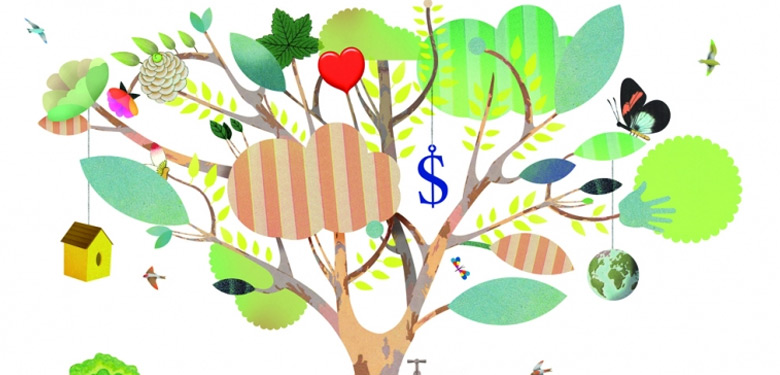
Doing good index aims to unlock US$500 billion in private social investment
Asian philanthropists could inject over US$500 billion towards the achievement of the Sustainable Development Goals, according to the new Doing Good Index launched mid-January by the Centre for Asian Philanthropy and Society (CAPS), an organisation dedicated to facilitating excellence in philanthropy.
The Doing Good Index is a unique indicator-based study focusing on the regulatory and institutional infrastructure enabling or impeding private social investment, including impact investing and philanthropic giving, in 15 countries in Asia. More than 1,500 NGOs, non-profits and social enterprises across Asia contributed to the study, which CAPS believes can unlock latent resource potential in Asian economies and catalyse philanthropic investment. That investment, if equal to the charitable giving level of 2% GDP set by the United States, would equate to US$507 billion – 11 times overseas development assistance (ODA) to all of Asia – a sum that would contribute to a third of the US$1.4 trillion annual global cost of achieving the SDGs.
To unlock that potential, the report provides stakeholders with a better understanding of the environment in which philanthropists, service delivery organisations and impact investors operate across Asia. It focuses on issues around trust and transparency, governance and human capital, procurement and policy, and provides new data that seeks to lead the way to a more vibrant social sector.
The report found that Asian economies can be categorised into four distinct clusters depending on how far they are from creating a conducive environment for philanthropic giving. Its four sub-indexes outline factors that facilitate private financial investment and philanthropic giving, and provide explicit examples of measures taken by Asian economies to develop the social sector and stimulate charitable giving.

Source: Doing Good Index 2018
Some key findings include:
Tax and Fiscal Policy
Tax deduction limits for charitable donations matter, as do rates. 96% of organisations said the tax deductions were important for corporate donors. However, despite signalling that a government values corporate giving, incentivizing corporate philanthropy and overcoming disincentives to part with profit, rates of tax deduction vary greatly between the lowest (Myanmar, 0%) and highest (Singapore, 250%) figures.
While high rates of deduction are welcome, they can be offset by limits on income that can be donated. In Singapore where there is no limit, the introduction of a higher rate of tax deduction saw donations jump by almost 25%. The report highlights the fact that there is space to adjust the approach to the nuances of each individual economy. The Doing Good Index indicates that this is beginning to happen across Asia.
Regulation
The restricting red tape of registration. The regulatory landscape is vastly different between Asian economies. Some economies require 1-2 clearances (Sri Lanka, Malaysia, Singapore) to register an organisation as a non-profit and others requiring as many as 10 clearances (China, Thailand). The time taken to register is also varied, with China, taking one month, being amongst the quickest, whereas Hong Kong can take a full year. The report states that a more transparent and efficient registration process levels the playing field and opens the social sector to more entrants.
Ecosystem
Good governance is the new normal, but capacity building support is needed. The study reports that having a board is the new normal amongst Asian Social Delivery Organisations (SDOs), a term CAPS uses to refer to organizations that are engaged in delivering a product or service that addresses a societal need. However, the majority of SDOs find it difficult to recruit business professionals for their boards. Economies most in need of more participation from business professionals are India and Vietnam, where as many as 41% and 31% of SDOs respectively lack business professionals on their board. In addition, only 28% of organisations surveyed consistently get capacity building support from their donors.
Procurement
Government contracts can facilitate innovation. While transparency and access to information about government requests for proposals or tenders were maligned, forward thinking governments are using SDOs as pilot programmes for potential national programmes
In China, where 64% of organisations surveyed held government contracts, local governments have been contracting out projects to social enterprises and NGOs to try innovative approaches and find cost-efficiencies while delivering social impact. The Social Innovation Centre in Foshan City is one such case study. The government provides rent subsidies, seed funding and registration assistance for non-profit and social enterprise start-ups.
The Index was constructed with a top score of 5 and a lowest score of 0. No economy achieved the highest score available, with countries performing well in one sub-index being dragged down by poor performances in others. Each of the 15 Asian countries in the study have a way to go to reach their full potential.
The development of analytical tools such as the Doing Good Index can help inform conversations and decisions around private social investment and philanthropic giving, and in the process help economies meet their full potential. However, as Dr Shapiro, Chief Executive of CAPS stated, the opportunity will be missed unless “Asian governments…lay the right regulatory, institutional, and even cultural and social foundations for private social investments to thrive.”
Addressing complex challenges requires multi-sector and multi-stakeholder involvement. Through identifying enablers and barriers to progress, the Index can direct stakeholders’ efforts to the location-specific factors that matter, and provide a clearer understanding of what actions can be taken to unleash the potential of private social investment and philanthropy in Asia. If it achieves this, the Doing Good Index could significantly contribute to the global pursuit of the Sustainable Development Goals.